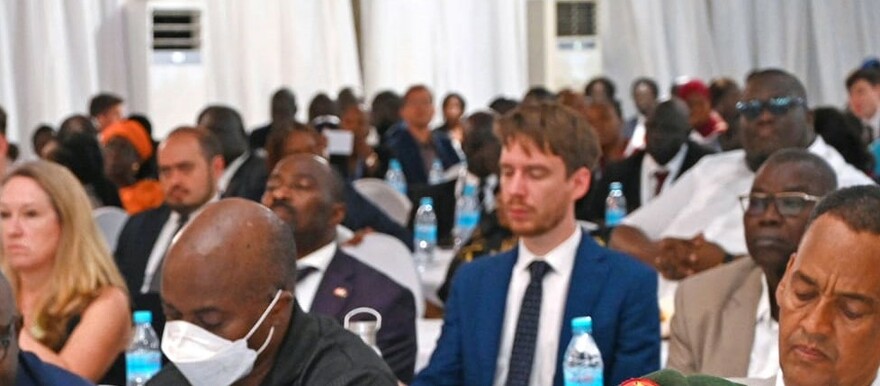Experts drawn from various countries are currently taking part in a three-day conference on transitional justice mechanisms in South Sudan to ensure justice and accountability.
The first-ever conference in Juba brought together experts from South Africa, The Gambia, Rwanda, Sierra Leone, Congo, and Ethiopia to share their post-conflict experiences with South Sudanese.
The conference, which kicked off on Monday, is under the theme, “Building a Sustainable South Sudanese Model for Transitional Justice System.”
The opening event was attended by President Salva Kiir, First Vice President Riek Machar, four vice presidents, speakers, national ministers, state governors, chief administrators, state ministers, county commissioners, and international experts.
Addressing the conference, President Salva Kiir Mayardit said the experience the experts will share with South Sudan will help the country build its own transitional justice system.
“I know that many of you traveled from parts of the world and some of you work for different organizations and others come from countries with experience on transitional justice. You have all heartily taken the travel to come to share your experiences with us as we struggle to build our own transitional justice system,” Kiir said.
He said transitional justice will give people the opportunity to seek the truth, reconcile their minds, and heal the wounds of being a victim of the war on the basis of the truth.
“It is for this reason that the Revitalized Peace Agreement on the Resolutions of Conflict in the Republic of South Sudan provided for chapter five on Transitional Justice and Accountability. I consider this a very important chapter because it gives people the opportunity to truth-telling, reconcile their minds, and heal the wounds of being a victim on the basis of the truth. Those who are found guilty will have the opportunity to apologize and ask for forgiveness. The victims will also find the heart to forgive and qualified for compensation and reparation,” Kiir said.
Ruben Madol Arol, South Sudan’s Minister of Justice and Constitutional Affairs, said the conference will enrich draft bills for the establishment of the Commission of Truth, Reconciliation, and Healing, and Compensation and Reparation Authority.
“The conference is to enrich the draft bills for the establishment of the Commission on Truth, Reconciliation and Healing and Compensation and Reparation Authority and for the regional and international experts gathering here today to share their experiences,” Modal said.
Meanwhile, Rebecca Joshua Okwaci, Chief whip of SPLM in the Transitional National Legislative Assembly, said the conference will enrich draft bills as well as help the country gain experience from regional countries to build a strong transitional justice system.
“This conference, in particular, will give a chance for expertise, experienced and technical people to discuss so that the draft bills that are there will be enriched and when they are enriched, we would have learned from the experiences of other countries like South Africa, Gambia, and Rwanda from the issues of transitional justice,” said Rebecca.
Addressing the same conference, the Chairperson of the Reconstituted Joint Monitoring and Evaluation Commission (RJMEC), Charles Tai Gituai, said: “It is important that the Transitional Justice model to be used in South Sudan is homegrown and in accordance with the people’s sense of justice.”
The peace monitor further said t is expected that the outcome will inform and enrich the legislative process for the establishment of the Commission for Truth, Reconciliation and Healing, and the Compensation and Reparation Authority.
He added,” This conference provides an opportunity for interaction and knowledge sharing so that all participants can contribute to the development of a South Sudanese model of transitional justice.”
Chapter 5 of the 2018 peace agreement in South Sudan provides for the implementation of transitional justice, in particular truth-seeking, reconciliation, healing, reparations and accountability using a range of interlinked mechanisms.
The agreement also provides for the establishment of a hybrid court to hold perpetrators to account by bringing South Sudanese and other African experts together to try the most serious crimes.
But South Sudan’s political leaders have repeatedly sought to block the establishment of this court.
Also, the commissioner for truth and healing has not yet been established.




